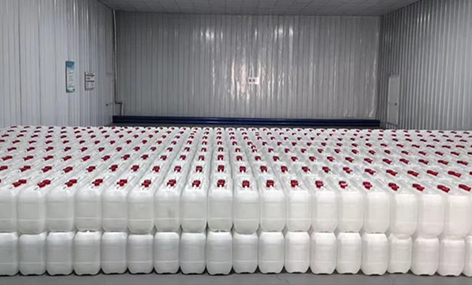
7 月 . 27, 2024 14:31 Back to list
Exploring the Properties and Applications of Concentrated Ethanoic Acid in Various Industries and Chemistry.
The Applications and Importance of Concentrated Ethanoic Acid
Ethanoic acid, commonly known as acetic acid, is a colorless liquid organic compound with a pungent smell and a sharp taste. When concentrated, ethanoic acid is a powerful chemical agent that finds numerous applications across various industries. The concentration of ethanoic acid can vary, but the concentrated form typically contains around 99% acetic acid. This high concentration makes it a versatile substance in both industrial and laboratory settings.
One of the primary uses of concentrated ethanoic acid is in the production of various chemicals. It serves as a vital feedstock in the synthesis of acetate compounds, which are used to produce plastics, solvents, and fibers. For instance, the manufacturing of polyvinyl acetate, a widely used adhesive, involves the polymerization of vinyl acetate derived from ethanoic acid. Additionally, it is an essential precursor in the production of acetic anhydride, which is important in the pharmaceuticals and chemical industries.
In the food industry, concentrated ethanoic acid plays a crucial role as a preservative and flavoring agent. Vinegar, a diluted solution of acetic acid, is widely used in food preparation and preservation. The concentrated form is used to produce vinegar on a large scale, where its antimicrobial properties help inhibit the growth of spoilage microorganisms. Moreover, the acidity imparted by ethanoic acid contributes to the distinctive tanginess and flavor profile of various cuisines across the globe.
concentrated ethanoic acid

Concentrated ethanoic acid is also valued in the agricultural sector. It can be used as a herbicide and a pH regulator in soil management. Organic farmers often utilize this compound to control weeds and pests in an environmentally friendly manner. The compound helps maintain soil acidity, which is critical for many crops to absorb nutrients effectively. Its role in organic farming underscores the increasing trend toward sustainable agricultural practices.
In addition to its industrial and agricultural applications, concentrated ethanoic acid has significant importance in laboratories. It is frequently used as a reagent in chemical syntheses and reactions. Its strong acidic properties make it effective in protonating organic compounds, facilitating various organic transformations. Furthermore, concentrated ethanoic acid is employed in DNA extraction protocols, where it helps lyse cell membranes and release genetic material.
Despite its many beneficial applications, concentrated ethanoic acid must be handled with care due to its corrosive nature. Exposure can lead to irritation of the skin, eyes, and respiratory system. Therefore, it is vital to follow proper safety protocols when working with concentrated forms, including the use of personal protective equipment (PPE) and adequate ventilation.
In conclusion, concentrated ethanoic acid is a highly versatile chemical with significant applications across multiple sectors. From its roles in industrial chemical production to its importance as a food preservative and laboratory reagent, concentrated ethanoic acid demonstrates its value in both everyday life and specialized fields. Its diverse uses underscore the need for responsible handling and knowledge of its properties, ensuring that its benefits can be harnessed safely and effectively. As industries continue to innovate and seek more sustainable practices, the role of concentrated ethanoic acid is likely to grow even further, paving the way for new applications in the future.
